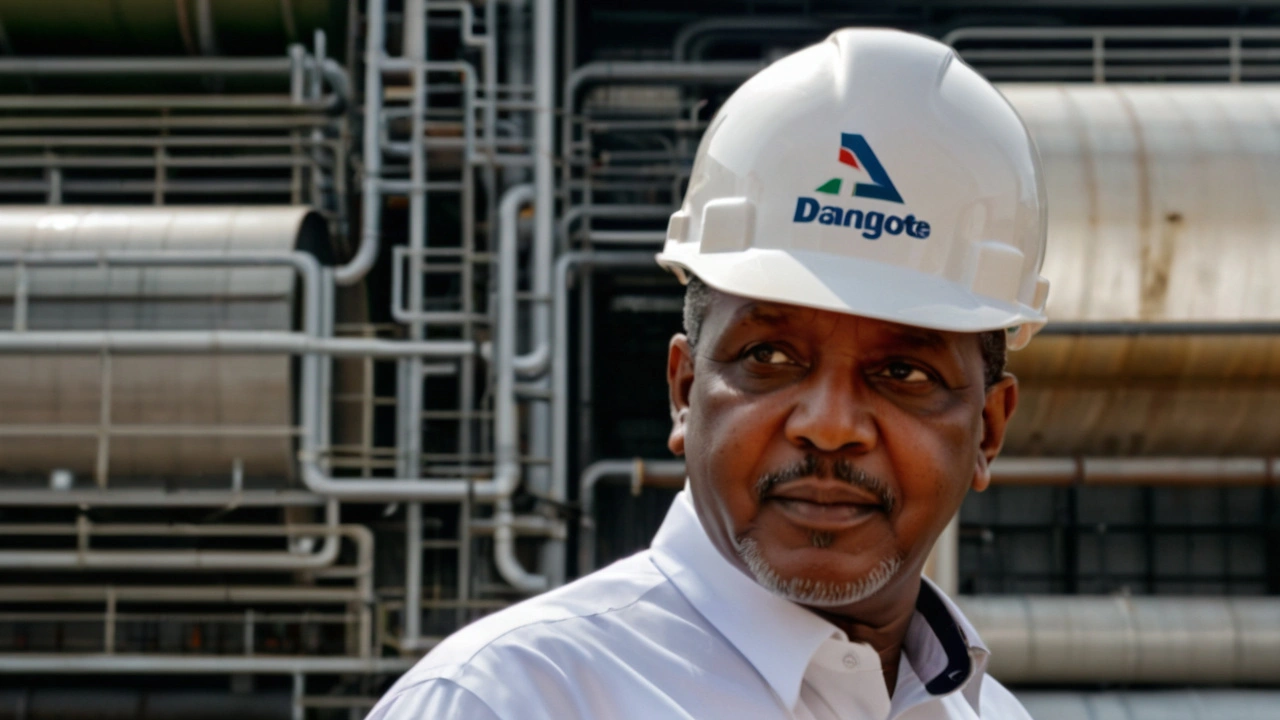Aliko Dangote's Landmark Refinery Project
Aliko Dangote, known as Africa's richest man, is contemplating the sale of his massive 650,000 barrels per day (BPD) oil refinery to the Nigerian National Petroleum Company Limited (NNPCL). This unexpected move comes amid allegations of monopoly and significant difficulties in securing crude oil supplies from international producers. Open since last year, the $19 billion refinery is designed to dramatically reduce Nigeria’s dependence on imported fuel, which currently consumes about 30% of the country's foreign exchange reserves.
Securing Crude Supply: An Ongoing Challenge
Dangote's state-of-the-art refinery has been grappling with problems from the onset. Finding reliable and steady sources of crude oil has proven to be a formidable challenge. International producers have not been as forthcoming as anticipated, throwing a wrench in the refinery’s operations. To mitigate this, Dangote has found alternative supply channels, notably from Brazil and the United States. Presently, the refinery operates at only half of its intended capacity, underscoring the severity of these supply issues.
Regulatory Hurdles and Partner Conflicts
Adding to the complexity of the situation are ongoing regulatory challenges within Nigeria. Dangote is navigating through a labyrinth of government requirements and permits, which delays progress and increases operational complexities. Equally problematic is the dispute with a key equity partner. This disagreement has cast uncertainty on the project's future, making it imperative to resolve these conflicts sooner rather than later.
Allegations of Monopoly
Opponents have accused Dangote of establishing a monopoly in Nigeria's energy sector. A sale to the NNPCL, Dangote argues, would dispel such notions. He maintains that his commitment has always been towards the betterment of the nation; if divesting his stake in the refinery would achieve that goal, he is willing to take that step. The refinery has already delivered 6.9 million barrels of oil to the Nigerian National Petroleum Company, significantly benefiting Nigeria’s energy landscape.
A Commitment to National Benefits
Despite the headaches, Dangote is fiercely dedicated to the project's success. He envisions the refinery as a game-changer for Nigeria, capable of making a substantial and lasting impact on the country’s energy sector. By reducing the reliance on imported fuel, the refinery can conserve a considerable amount of foreign exchange and boost domestic capacity and employment.
Looking Ahead
The prospect of selling the refinery raises numerous questions about Nigeria’s energy future. Would the NNPCL be able to address the supply and regulatory issues more effectively? Can it operate the refinery at full capacity to deliver the proposed benefits? These are essential questions that stakeholders and policymakers will need to consider. The potential sale could pave the way for other private-public partnerships, potentially reshaping Nigeria's approach to energy independence.
Indeed, the Dangote refinery is more than just an industrial plant; it represents hope and ambition for a nation striving to reclaim control over its energy resources. Whether through private ownership or a public-entity takeover, its success will serve as a testament to what can be achieved with vision, investment, and perseverance.


Pierce Smith
Considering the strategic importance of the refinery, the potential sale to NNPC could align with national interests while preserving the private sector's expertise. The current supply challenges highlight the need for diversified crude sources, and a public‑private partnership may ease regulatory hurdles. It is also essential to keep operational efficiency high to justify the massive capital outlay.